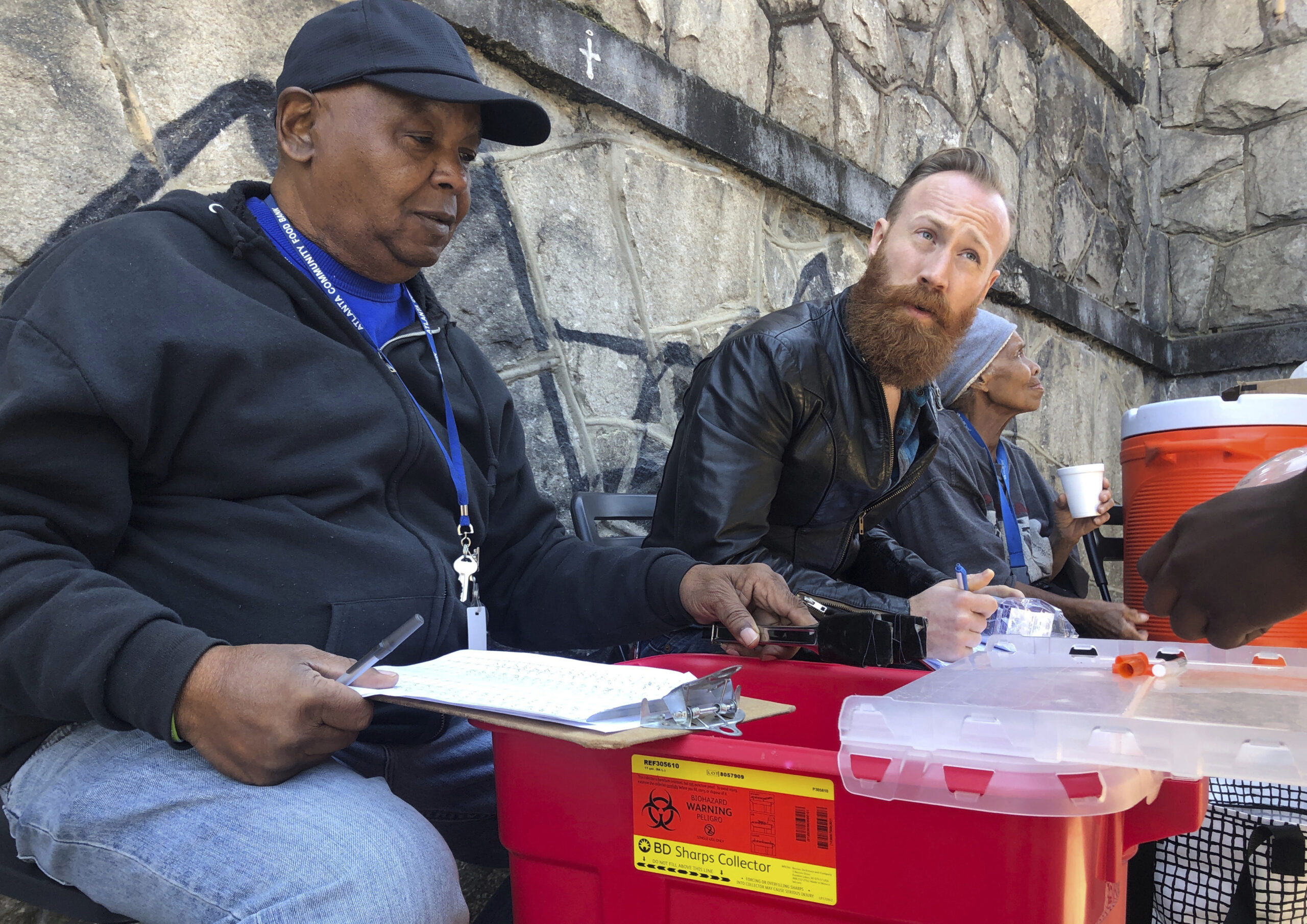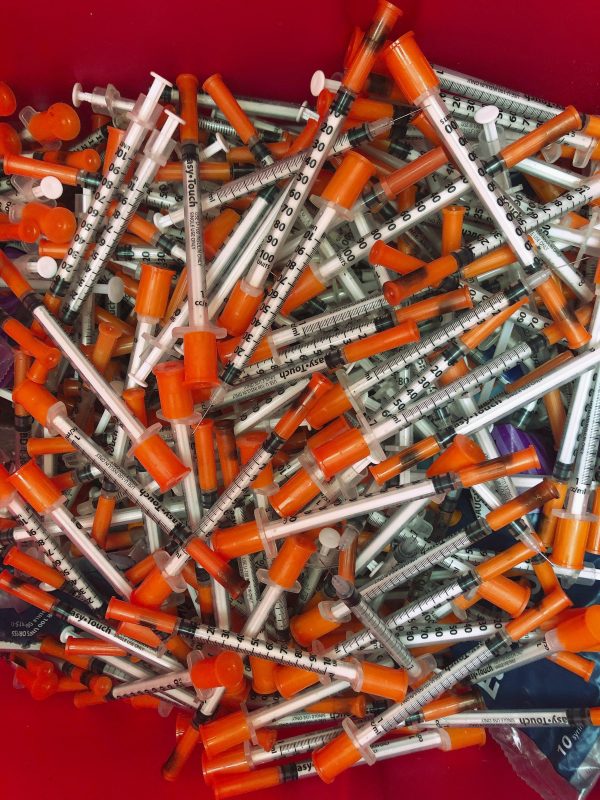Georgia Becomes The Latest State To Legalize Needle Exchanges To Stop HIV

Harry Ethridge, client services manager at the Atlanta Harm Reduction Coalition, and Jonathan Spuhler, an outreach coordinator for Absolute Care and volunteer at AHRC, set up a needle exchange station for drug users to swap out used syringes for clean syringes on English Avenue, in Atlanta.
Sanya Mansoor / Associated Press
James Lane has a backpack full of syringes slung across his shoulder as he goes to exchange used needles for sterile ones at a small booth set up by an Atlanta needle exchange clinic. The clinic, which operates in an area known as a hot spot for drug use in Atlanta, collects and distributes syringes. It’s among just a few of its kind operating publicly in Georgia and a godsend to Lane, who says he turned to heroin and cocaine to self-medicate for post-traumatic stress.
“It’s not the right answer. I know that. But right now I’m able to sustain my life,” he said. He said he also exchanges needles on behalf of five friends who are embarrassed to show up in person.
Such clinics may become more widespread in Georgia after Gov. Brian Kemp signed a bill into law Tuesday legalizing needle exchanges. While opponents have historically criticized needle exchange programs as condoning drug use, many experts disagree, saying these initiatives help contain the spread of HIV and other infectious diseases that sometimes linger in used syringes.

At least 320 needle exchanges currently exist across the U.S. and are legal in 28 states and Washington, D.C., according to HIV and AIDS research organization AmfAR. Idaho legalized them just last month. While the number of clinics has been steadily rising since the ’90s, there has been a recent surge around the country: About 100 additional clinics opened after a 2015 outbreak in a Southern Indiana county where more than 200 people tested positive for HIV, said Asal Sayas, amfAR’s director of government affairs.
The Centers for Disease Control and Prevention says the estimated lifetime cost of treating one HIV patient is more than $400,000 and that people who inject drugs are five times as likely to enter substance abuse treatment if they use a needle exchange.
“This is a step in the right direction but more work needs to be done,” Sayas said. She said Georgia should now set aside money for these programs in the state budget and ensure access in rural communities.
The needle exchange program in Atlanta is run by the Atlanta Harm Reduction Coalition, a nonprofit advocacy group that works with individuals engaged in high-risk activities.
Fulton County — where AHRC operates — has drawn the attention of the federal government as one of 48 counties nationwide that account for more than half of all new HIV transmissions. Georgia has one of the highest rates of new HIV cases in the U.S.
Mona Bennett, co-founder of AHRC, said police allowed the Atlanta-based needle-exchange program to function as part of an informal agreement, but she said the new law would bring legal clarity while also opening up avenues to federal funding.
“I am so happy about this victory for public health,” Bennett said.
At AHRC’s clinic, clients come from all over the region. Some are homeless. Others show up in suits. They used to be almost exclusively middle-aged and black but now also include more young white people from the suburbs, clinic organizers said.
The group gives out naloxone, a drug that can reverse opioid overdoses, provides free HIV testing, and refers clients to detox and counseling services.
Republican Rep. Colton Moore of Trenton voted against the bill, saying it would only enable drug users.
“These are reactionary programs. They are not going after the root cause,” Moore said.
Moore’s reasoning echoes that of many conservatives who traditionally have opposed needle exchanges. But there are signs the tide is changing, at least in some places.
Last month, President Donald Trump’s secretary of Health and Human Services, Alex Azar, voiced support for needle exchanges, and as governor of Indiana, Vice President Mike Pence reluctantly allowed needle exchanges on a case-by-case basis after the countywide outbreak.
The sponsor of Georgia’s bill, Rep. Houston Gaines of Athens, said he appreciated Kemp’s support. The law will “save lives and money,” he said.
At the AHRC needle exchange, Tina Johnson says she had blood poisoning three times from using unclean needles, and she’s seen some people use syringes they picked up off the ground.
“They feel as though this will make people do drugs,” Johnson remarked of critics, “but in reality it keeps people healthy.”








